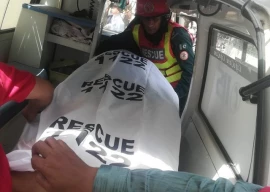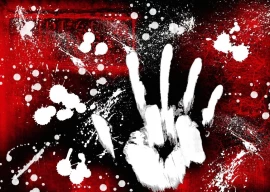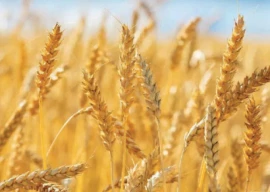
Another year has gone by, leaving behind a trail of broken promises and lost hope for Kashmiris who opted to migrate from Indian Kashmir to the Pakistan-administered territory after partition in waves.
Their expectations of starting a new life as full-fledged citizens of an independent Kashmir with all rights and privileges remain unfulfilled to this day.
Even 65 years after independence, discrimination towards the refugees continues.
Spread out across Azad Jammu and Kashmir AJK and Pakistan in Kashmir colonies created by the AJK government decades ago, they still lack basic facilities.
Although the AJK government claims to have committed significant funds for the provision of civic amenities to these colonies in every annual budget, a visit to the refugees’ homes proves otherwise. Thousands of refugees settled in Neelam valley, Muzaffarabad, Mirpur, Bhimbher, Bagh, Rawalakot and other districts are waiting to this day to be relocated to their new homes.
Blaming the state of affairs on the hostile and discriminatory attitude of successive AJK governments, Young Action Forum of Kashmiri Refugees, Jammu and Kashmir, general secretary, Sardar Attique Sadhozai alleged that thousands of refugees were living without shelter in Mirpur, Rawalakot and Palandri.
Sadhozai told The Express Tribune that refugees face great discrimination in recruitment for government jobs due to limited quota in state-run and autonomous bodies.
He blamed tribal affiliations and the political influence they wield in AJK as the major reason for the refugees’ marginalisation.
Latif Ghaus, a schoolteacher and Raja Muhammad Azam, both refugees, said their homes lack basic amenities including clean drinking water, sewage and natural gas, since they were
housed in these camps over 36 years ago, in separate interviews given to The Express Tribune on the eve of the Universal Refugees Day. They also complained about the unavailability of safe public transport.
“This is a blatant violation of human rights, since the state is responsible for providing basic facilities to its citizens,” said Usman Lone, a university student. The refugees have called for speeding up the rehabilitation process and ensuring the provision of facilities at par with those available for AJK residents.
Refugees began to migrate from Jammu and Kashmir in 1947–48 against the backdrop of the partition of India and its aftermath. According to the division, agreed to by the Raj, All Indian National Congress and the All India Muslim League, this Muslim-majority state, should have acceded to Pakistan.
Later, refugees poured in AJK during the Pakistan-India war of 1965, in the hundreds of thousands. Similarly, a heavy influx of refugees from Indian Kashmir was witnessed in the nineties when Kashmiris engaged in an armed struggle against India for the liberation of their motherland.
Published in The Express Tribune, January 10th, 2012.
COMMENTS (3)
Comments are moderated and generally will be posted if they are on-topic and not abusive.
For more information, please see our Comments FAQ







































@A.Khan, Intersting point, even the girl in the picture looks more like afghani rather than kashmiri.
As far as I know no one in AJK has natural gas in their homes, so why the expectation to be given that ?
And to be honest, I have never heard or seen thousands of refugees living in Rawalakot and Palandari region as I have visited many times.There are Afghan refugees living there certainly.
Now they repent for crossing to this side of Kashmir inviting their own misery, neglect and discrimination.